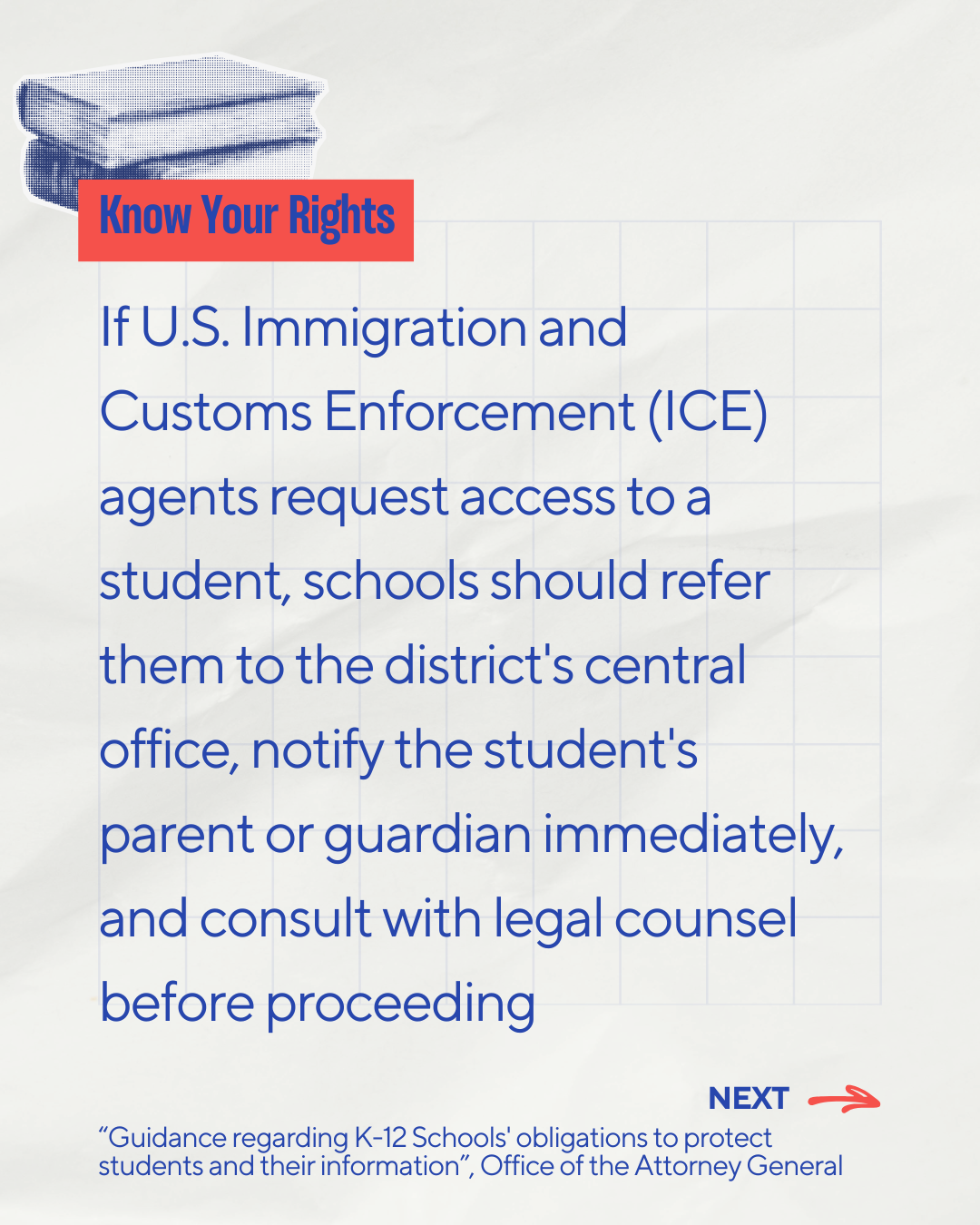Know Your Rights: ICE and Schools
Guidance from the MA Attorney General’s Office regarding K-12 Schools' obligations to protect students and their information
All students, regardless of immigration status, have the right to a free public education. Schools must not implement policies that discourage or deny access based on immigration or citizenship status. Massachusetts law and federal precedent make it clear: schools are not immigration enforcement zones. A new guidance from the Massachusetts Attorney General’s Office outlines how K–12 public schools can uphold students' rights and protect sensitive information in the event of requests from U.S. Immigration and Customs Enforcement (ICE).
Below is a summary of key protections, along with additional detail to help families, educators, and school staff understand what to expect and how to respond.
Protect Student Privacy: Information Collection
Schools should avoid collecting unnecessary information, such as passport details, visa information, or Social Security numbers, during enrollment to protect student privacy and prevent deterring enrollment.
To safeguard students’ privacy, schools are encouraged to limit the collection of sensitive personal data during enrollment and recordkeeping. That includes:
Social Security numbers
Passport numbers
Visa details
Immigration status
This practice helps ensure families feel safe enrolling their children without fear that information could later be used for immigration enforcement.
ICE Requests Must Be Handled Carefully
If U.S. Immigration and Customs Enforcement (ICE) agents request access to a student, schools should refer them to the district's central office, notify the student's parent or guardian immediately, and consult with legal counsel before proceeding.
Schools are prohibited from disclosing a student's personally identifiable information to third parties, including ICE agents, without specific, informed written consent from a parent or guardian, unless a specific legal exception applies. Exceptions to this rule are narrow and must meet specific criteria outlined by law—such as a valid subpoena or judicial order. Even then, schools should consult with legal counsel before disclosing any information.
If an ICE agent seeks to interview or physically remove a student from school property, schools must not allow it unless one of the following applies:
The agent presents a valid judicial warrant signed by a federal or state judge, not just an administrative ICE document
The school obtains specific, informed written consent from the student’s parent or legal guardian
This safeguard ensures that no student is subjected to surprise questioning or removal during the school day without due process and parental knowledge.
Creating Safe Learning Environments
The Attorney General’s guidance emphasizes that schools should remain safe, inclusive environments where students and families feel secure regardless of their immigration status. Educators and administrators have a legal and ethical responsibility to uphold these protections and respond appropriately to any enforcement-related requests.
Families who have questions or concerns can:
Contact their school district’s legal or family liaison office
Reach out to trusted immigrant rights organizations
Review the full guidance on the Massachusetts Attorney General’s website
As immigration enforcement continues to impact communities across the country, Massachusetts schools must take active steps to protect students' rights and privacy. By understanding these responsibilities and following the Attorney General’s guidance, school staff can support safe, uninterrupted education for every child.










